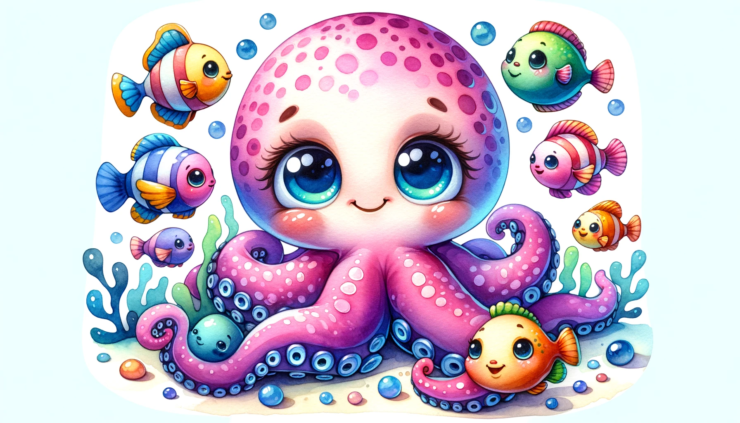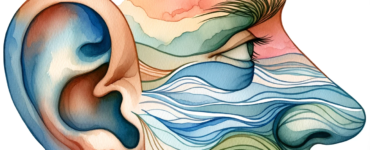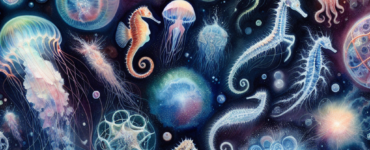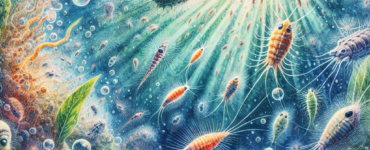Have you ever heard of the extreme self-sacrifice a mother octopus makes during her egg-brooding period?
During this time, the mother octopus does not eat at all. She devotes all her energy to the care and protection of her eggs, a commitment that unfortunately results in considerable deterioration of her health due to extended fasting.((https://www.cbc.ca/documentaries/the-nature-of-things/mother-octopus-makes-the-ultimate-sacrifice-for-her-babies-1.6606813))
Octopuses are fascinating creatures with some unique biological features. Here’s more:
- Three Hearts: An octopus has one systemic heart and two branchial hearts. The systemic heart, which is the main one, is responsible for pumping blood throughout the body, except for the gills. The two branchial hearts pump blood specifically through the gills, where it gets oxygenated.((https://www.newscientist.com/question/many-hearts-octopus/))
- Blue Blood: The blue color of an octopus’s blood is due to the presence of hemocyanin, a copper-containing protein. Hemocyanin is used for oxygen transport in the blood, similar to how hemoglobin works in human blood. However, while hemoglobin is iron-based and makes our blood red, hemocyanin is copper-based and gives the blood a blue color. This copper-based system is more efficient at transporting oxygen in cold and low-oxygen environments, which is advantageous for many octopuses living in deep and cold waters.((https://www.nhm.ac.uk/discover/octopuses-keep-surprising-us-here-are-eight-examples-how.html))
- Adaptation to Low Oxygen Environments: The unique circulatory system of octopuses, with their three hearts and hemocyanin-based blood, is an excellent adaptation to their often hypoxic (low-oxygen) environments. This system ensures efficient oxygenation of their body tissues, even when oxygen is scarce.((https://blogs.scientificamerican.com/octopus-chronicles/octopuses-survive-sub-zero-temps-thanks-to-specialized-blue-blood/))
- Energy Conservation: When an octopus swims, the systemic heart that delivers blood stops beating, conserving energy and limiting their stamina. That’s why octopuses prefer crawling rather than swimming, reserving swimming for quick escapes.((https://www.smithsonianmag.com/science-nature/ten-curious-facts-about-octopuses-7625828/))
- Incredible Regenerative Abilities: Apart from their unique circulatory system, octopuses are also known for their remarkable ability to regenerate lost limbs, a process that is still the subject of much scientific study.((https://www.dutchsharksociety.org/do-octopus-arms-grow-back/)),((https://www.nbcnews.com/science/weird-science/arms-how-octopuses-avoid-tying-themselves-knots-n106576))
Octopuses are truly one of the most intriguing creatures in the animal kingdom. Here are more interesting facts about them:
- Camouflage Experts: Octopuses are masters of disguise. They can change their skin color and texture in seconds to blend in with their surroundings. This ability is not just for hiding from predators; they also use it to hunt and communicate.((https://www.nwf.org/Educational-Resources/Wildlife-Guide/Invertebrates/Octopuses))
- Incredible Escape Artists: Octopuses can squeeze through incredibly small spaces with their soft bodies. They are known to escape from their aquariums and even unscrew jars from the inside.((https://www.nytimes.com/2016/04/14/world/asia/inky-octopus-new-zealand-aquarium.html))
- Short Lifespan: Despite their complexity and intelligence, most octopuses have a short lifespan. Many species live for as little as six months, while some larger species, like the giant Pacific octopus, can live up to five years.((https://www.avma.org/javma-news/2015-07-15/scary-smart))
- Detachable Limbs: When threatened, some octopus species can detach a limb, which will continue to move and distract the predator, allowing the octopus to escape. The limb will later regenerate.((https://animalqueries.com/how-do-octopus-defend-themselves/))
- Mini-Brains in Each Arm: Octopuses are known for their extraordinary nervous systems, which include having a portion of their nervous system distributed throughout their arms. This unique feature often leads to the description that each arm of an octopus has a “mind of its own.”((https://www.labmanager.com/do-octopuses-arms-have-a-mind-of-their-own-24283)),((https://octonation.com/facts-about-octopus-arms/))
- Venomous: All octopuses are venomous, but only a few species are dangerous to humans. The blue-ringed octopus, for example, carries a venom that can be fatal.((https://www.nationalgeographic.com/animals/article/octopus-venom-hunting-cephalopod))
- Solitary Creatures: Octopuses are generally solitary animals, coming together only to mate.((https://www.atlasobscura.com/articles/octopus-behavior-metazoa))
These characteristics are evidence of the octopus’s complex and intriguing biology, reflecting their adaptation to a diverse range of marine environments. Their unique physiology, well-known intelligence, and problem-solving abilities make octopuses a subject of great interest in marine biology and animal behavior and cognition studies.





































Add comment